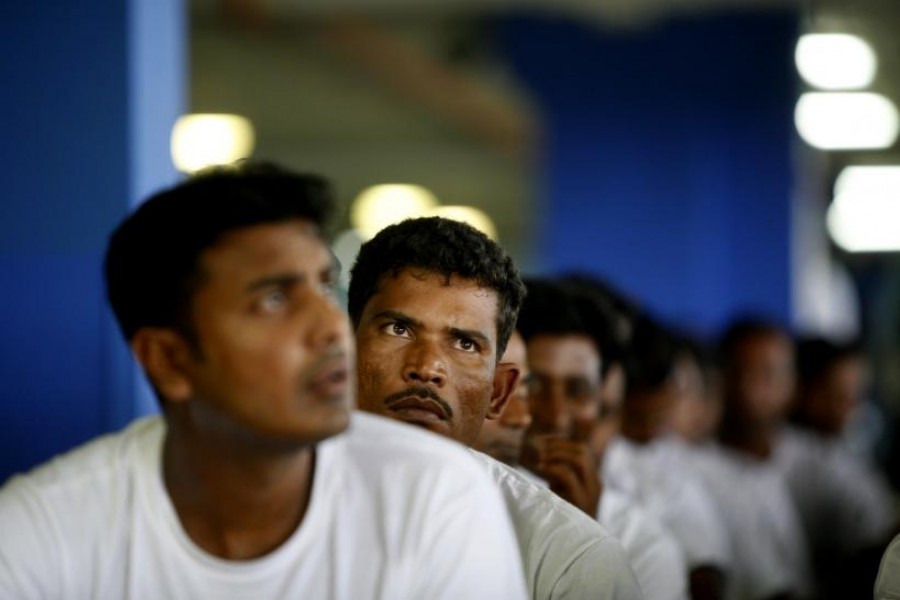Seizing passports by employers leave many Bangladeshi migrant workers in Brunei in dire straits, as their fundamental rights are violated for it, workers and officials said.
Although passport confiscation is illegal, a section of employers and middlemen take the passports of the workers when they reach the country, they added.
In absence of the key document, the workers lose their legal status and face different kinds of harassment in the foreign land.
Many of them also faced difficulties to receive Covid-19 vaccines in recent days, as they could not show their passports.
Masud Mia (35), a worker from Narsingdi, said his passport was kept by his employer, and he could not move for at least two months. Even, he was not provided with any job. After that, he ran away from a camp.
Masud also said he spent Tk 450,000 to go to the Southeast Asian country in 2019. He was promised a job as a cleaner in an airport with a monthly wage of Tk 60,000.
But his dream was shattered when he reached the country. He could not manage any work, and struggled to procure even his foods, he recalled.
"As I was unable to survive, I returned home empty-handed seven months later," Masud added.
Amiruddin Ahmed, another worker, said his employer took his passport when he reached Brunei in July 2018. Since then he had not got it back.
"As I had no passport and identity card, police arrested me while raiding a nursery."
His employer then submitted the passport to immigration officials to free him.
"Police released me, but kept my passport. Instead of the passport, the immigration officials provided me a special pass. It is an unbearable condition that I cannot express in words."
He also faced trouble receiving the coronavirus vaccine due to the absence of a passport.
Although Brunei made the Covid-19 vaccination free for foreign workers, some of them were facing problems due to the absence of any official documents, Amiruddin added.
Recently, the Bangladesh High Commission in Bandar Seri Begawan sent a letter to the Ministry of Foreign Affairs in Brunei regarding the problem.
It said, "While a significant number of Bangladeshi nationals in Brunei have already been vaccinated against the Covid-19, a small number of Bangladeshis might not have yet been able to get the vaccines, predominantly owing to the fact that the physical copies of the workers' passports are usually held by the employers."
The legitimate holders of the passports often do not get their private documents back from the employers, when these are needed to avail vital services like the Covid vaccines, it said.
"The mission understands that in order to bring every eligible Bangladeshi expatriate under the vaccination regimen, either the employers here can be requested to take necessary measures as to inoculating their Bangladeshi employees, or the workers can be allowed to qualify for jabs without requiring them to present physical copies of passports," the letter added.
Shakirul Islam, chairman of the Ovibashi Karmi Unnayan Program (OKUP) said the employers confiscate the migrant workers' passports to fulfil their vested interests. They apply this technique so that they can use the workers as 'bonded labourers'.
It is an illegal practice. Both the worker-sending and receiving countries should take measures to stop the unlawful act, he mentioned.
The OKUP chair suggested that the Bangladesh government should sign a deal with the Brunei government for sending workers, and it has to be made clear that the employers cannot hold the workers' passports.
He also called for raising the issue in international forums.
Officials said human traffickers exploited a large number of Bangladeshi workers in the name of labour migration in Brunei.
The majority of the workers were sent with the aid of airport immigration through 'body contracts' to that country.
The Brunei authorities blacklisted at least 31 fake companies in 2019 for their involvement in visa trading and harassing Bangladeshi migrants. Currently, about 13,000 Bangladeshis are staying in that country.
Contacted, Nahida Rahman Shumona, Bangladesh High Commissioner in Brunei, said they are trying to address the issues related to the workers' interests.
"I've informed the home and foreign ministries and other relevant departments that the employers are holding passports, and it is causing sufferings to our workers."
The Bangladesh envoy said she also raised the issue in different forums and civil society meetings so that such unethical activities in the recruitment process can be stopped.
Hopefully, changes would come following their initiatives, she mentioned.
She added that they are providing supports to the workers, who are impacted by the Covid-19 pandemic there.


